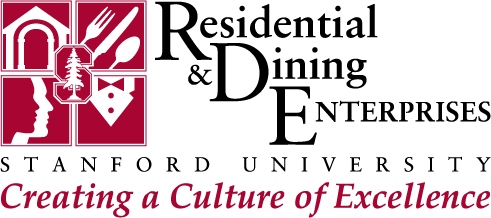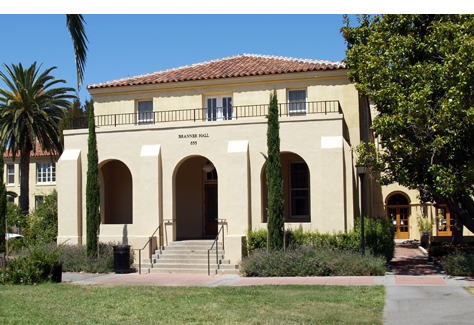Overview
Experience has shown that certain residences with special themes, student interests, and methods of house management are more successful when their residents hold a common concern for that which makes the residence unique.
Stanford has over 20 houses that offer special residential programs or co-op style living to students who demonstrate a specific interest in the house. These programs include:
- Language, culture, and academic theme houses
- Cross-cultural (ethnic) theme houses
- Focus houses
- Special Programs
- Co-ops
Some of these houses (Row Academic Theme Houses, Row Cooperative Houses, select Focus Houses) require all residents to meet publicized criteria and sign an agreement to participate and support the house program. Other houses (Cross-cultural Theme Houses, select Focus Houses, non-Row Academic Theme Houses) require residents who are pre-assigned into the house to meet the publicized criteria and sign an agreement to participate and support the house program. Residents who draw into these houses are not required to meet pre-requisites or participate in the theme program, however we strongly encourage these students to participate.
Language, Culture and Academic Theme Houses
Eight houses offer programs organized around language, culture, or academics:
- Crothers Hall (Global Citizenship Academic Theme House)
- EAST (Education and Society Academic Theme House)
- Haus Mitteleuropa (Central European Theme House)
- NEW for Autumn 2015! Humanities Theme Residence, Manzanita Park
- Kimball Hall, Manzanita Park
- (Arts and Performing Arts Academic Theme House)
- La Casa Italiana (Italian Language and Culture)
- La Maison Française (French Language and Culture)
- Slavianskii Dom (Slavic/East European Theme House)
- Storey House (Human Biology Theme House)
Theme houses enable both majors and non-majors with an active interest in a field to live together and explore a theme in a fun and comfortable residential setting. These programs feature lectures, receptions, film series, recitals, in-house seminars, special projects, and language tables, among other activities. Most houses maintain active contact with faculty in the relevant academic departments and programs. Theme houses often host noted scholars, cultural figures, and political leaders.
Special Campus Events
Many theme houses sponsor special activities intended to draw in the wider campus community, such as the weekly La Pizzeria at La Casa Italiana, and Oktoberfest at Haus Mitteleuropa. Non-theme activities are offered in each house as well. For students preparing for or returning from overseas study, the houses with a language theme provide opportunities to use the language on a daily basis.
Plan a Program/Take a Class
In addition to a Resident Assistant, student Academic and Theme Associates live in each house and help plan theme programs. Residents of theme houses must usually commit to take a class related to the theme and organize a theme project.
All Theme houses have student-managed board plans and University custodial service. Meals often feature foods related to the house theme.
Ethnic/Cross-Cultural Theme Houses
(Ethnic theme houses do not have specific requirements for the Draw process. House requirements are only to be met by students going through the pre-assignment process.)
Stanford’s four cross-cultural theme houses are:
- Casa Zapata (Chicano/Mexican-American Theme House in Stern Hall)
- Muwekma-Tah-Ruk (American Indian/Alaska Native Theme House located on the Row)
- Okada (Asian-American Theme House in Wilbur Hall)
- Ujamaa (Black/African-American Theme House in Lagunita Court)
In addition to social and educational opportunities available in any Stanford residence, the cross-cultural houses feature theme programs exploring American Indian/Alaska Native/Native Hawaiian, Asian-American, Black/African-American, or Chicano/Latino history and culture. Theme programs include campus-wide events, in-house classes, film and lecture series, group discussions, drama productions, music recitals, and readings by noted authors.
Special Campus Events
Cultural theme houses also sponsor major, campus-wide activities such as Asian Pacific Islander Heritage Month, an annual celebration organized by Okada; Club Ujamaa, a jazz and casino night in an African-American cultural setting; and Zoot Suit Week, Cinco de Mayo, and Dia de los Muertos celebrations at Casa Zapata. Muwekma-tah-ruk offers hands-on activities related to American Indian culture, such as pottery workshops, training in beadwork, and holds various activities to interact with members of the local Muwekma-Ohlone tribe.
Group Values and Identity
For students living in Casa Zapata, Muwekma-tah-ruk, Okada, or Ujamaa, the educational experience is enriched by participating in cross-cultural activities. Members of the ethnic groups living in the houses have an opportunity to be a part of a supportive community as the educational program emphasizes and values the cultural identity of the group. The programs enable all students in the house to learn about and appreciate the ethnic group's history and culture.
Support House Activities
For student residents who are not members of the ethnic group, the experience of day-to-day living in a cross-cultural house broadens outlooks, creates opportunities for new friendships, and encourages an appreciation and understanding of cultural differences.
If you are considering accepting an assignment to a cross-cultural theme house, it is important that you realize that all residents are expected to support the house's activities, theme-related or not. For the houses to be successful, all residents need to participate in the range of house meetings and programs.
Staff Committed to Theme Programs
Considering the special nature of their residences, the residence staff – a Resident Fellow, Resident Assistants, and Theme Associates – encourage and help residents work out compromises that make the houses comfortable places for all students who live there. The staffs are also committed to the theme programs and actively encourage participation of all residents in theme activities. All students who accept assignment to a cross-cultural theme house are expected to enter with a cooperative attitude, an open mind about living in a theme house, and a willingness to examine attitudes about race and ethnicity in our society.
Note: Ethnic priorities for assignment to Casa Zapata, Muwekma-tah-ruk, Okada, and Ujamaa are automatically issued to Chicano/Latino, American Indian/Alaska Native/Native Hawaiian, Asian-American, and Black/African-American students, respectively, based on ethnic data supplied by the Registrar's Office. In addition, each cross-cultural theme house offers a possible pre-assignment to all students, regardless of ethnicity, who meet certain objectively defined criteria.
Focus Houses
The residential programs below are featured as the house focus in a specific area:
- Public Service (Branner Hall)
- Substance Free Living (Mirrielees)
Like other residences, Focus houses offer diverse programs on many different issues. In addition, however, a portion of Focus house programs examine a specific field in greater depth. Student Focus Assistants live in each house—along with a Resident Fellow and Resident Assistants—and help plan focus programs. The houses serve as forums for residents and nonresidents to come together to discuss issues related to the house focus and to meet with faculty members from the focus area. The relaxed residential setting allows students to interact informally with other residents who are interested in learning more about the focus subject.
Students may obtain a space in a focus house through the pre-assignment process or by drawing into the house. Students who draw into eDorm must agree to participate in the eDorm program. Students who draw into Substance Free living must agree to abide by the Substance Free community standards (note: Substance Free Living is located within a designated wing within Mirrielees). Student who draw into the Branner focus house are encouraged, but not required, to participate in the house's focus.
Sophomore Priority House
Toyon Hall offers residential programming tailored to meet the needs of second-year students. As the first Stanford house with an all-sophomore emphasis, Toyon provides two major opportunities:
First is the chance to bond with a major portion of an entire class just as an all-frosh house does. The staff intends to begin with a strong sophomore orientation which gets everyone in the house to meet and learn something about each other. Then, continuing through the year, the house will have programming intended to encourage social interaction, like camping trips, outings and dances. Toyon should be a place where all its residents can feel comfortable, relaxed, and totally at home.
The second opportunity is the chance to address concerns unique to the sophomore experience: choosing careers, declaring majors, and giving academics greater attention. The house will have more interaction with faculty on a regular basis and special advising programs.
Students should choose Toyon because they want to combine the social energy of their freshman year with the excitement of moving into the more serious adventures of the sophomore year. The Toyon staff wants their residents to find Toyon a wonderful place to catalyze their shared experience and creativity.
Note: A priority for assignment to Toyon is issued automatically to current first-year students who list Toyon as a residence choice on their housing application.
Freshman-Sophomore Residential College
The Freshman/Sophomore College, housed in Adams and Schiff in Sterling Quadrangle, is a residence for freshmen and sophomores who are interested in broad intellectual exploration of the liberal arts and sciences. Entering students (freshmen) have the option of living for two years in the College. As the residential complement of Stanford Introductory Studies (SIS), the College connects residential life with the mentoring and academic activities offered through SIS courses. SIS courses include Introduction to the Humanities, Freshman and Sophomore Seminars, the Science Mathematics and Engineering Core, and Writing and Critical Thinking. For more information, read the Freshman/Sophomore Residential College page.
Cooperative Houses (Co-Ops)
Co-ops are alternative living/learning environments that provide an educational opportunity outside the classroom for Stanford students to develop as leaders and responsible citizens in a primarily student-managed community through the governance, cleaning, food operations, care, and community development of their living and learning environments.
The seven cooperative houses include:
- 576 Alvarado Row
- Columbae
- Enchanted Broccoli Forest
- Hammarskjöld
- Kairos
- Synergy
- Terra
Please go to our Co-op web page for more information. In order to list a co-op on your housing application, you must meet certain criteria, including agreeing to work a certain number of hours in the house.

